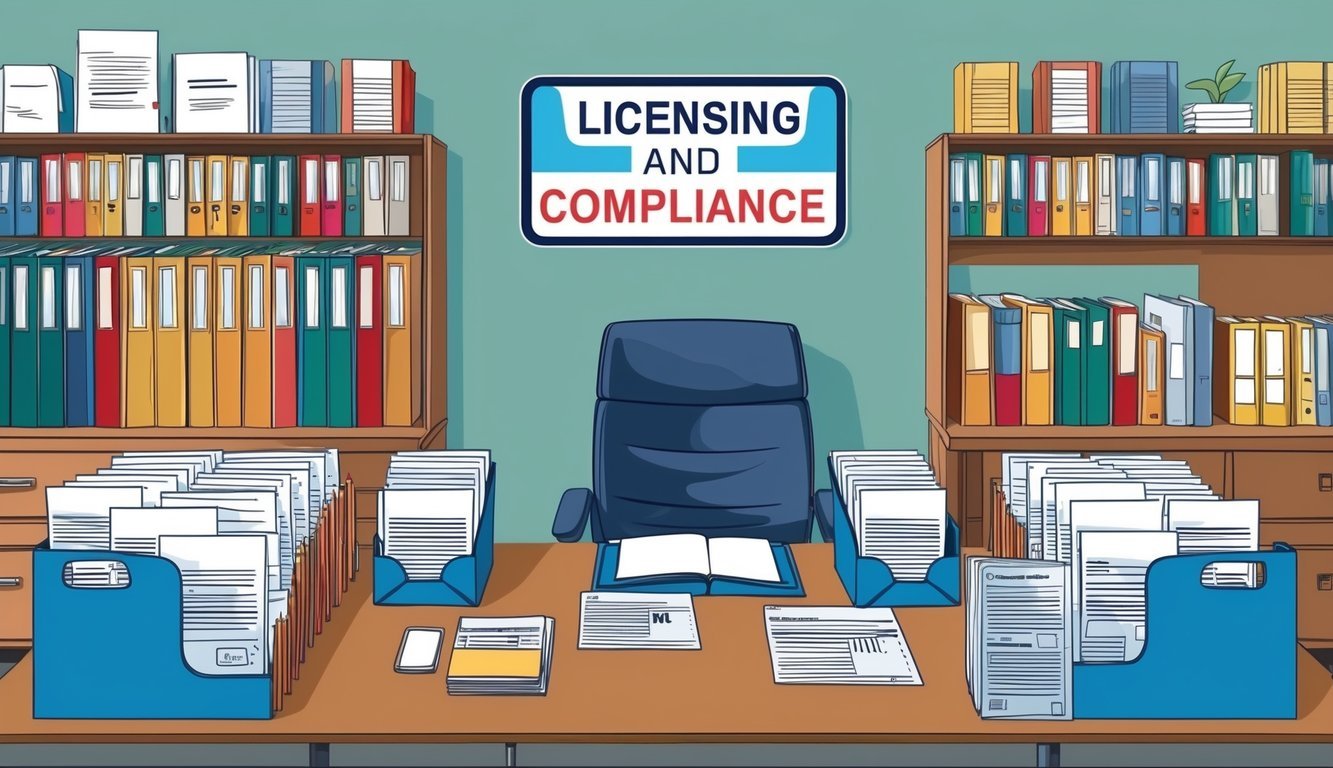Travel nurse agencies play a vital role in connecting nurse practitioners with temporary job openings across the country. These agencies simplify the process of finding travel positions.
They also offer competitive salaries, housing assistance, and support tailored to your needs. By working with a travel nurse agency, you can explore various healthcare settings while advancing your career.
As a nurse practitioner, choosing to work with a travel agency can open up numerous opportunities.
You can gain experience in diverse environments, enhance your skills, and meet new colleagues in different parts of the country.
This flexibility not only adds excitement to your career but also allows you to contribute to patient care where it is needed most.
Finding the right travel nurse agency can significantly enhance your professional journey.
With the right support and resources, you can navigate the complexities of travel assignments, from licensing requirements to understanding your benefits.
Key Takeaways
- Travel nurse agencies offer support and resources for nurse practitioners in temporary roles.
- Working with these agencies provides opportunities for professional growth and new experiences.
- Nurses can find competitive compensation and benefits while gaining valuable skills on the job.
Understanding the Role of a Travel Nurse Practitioner

As a travel nurse practitioner (NP), you take on a unique and vital position in the healthcare system.
Your responsibilities vary significantly based on the specific healthcare settings where you work.
This section will explore the scope of your practice and the types of assignments you might encounter.
Scope of Practice
Your scope of practice as a travel nurse practitioner can differ based on state regulations and facility policies.
Typically, you provide care in various settings, including hospitals, clinics, and telehealth services.
Here are some key aspects of your role:
- Patient Care: You assess, diagnose, and treat patients, often in high-pressure environments like the ICU or Critical Care units.
- Collaboration: You work closely with physicians and other healthcare professionals to develop treatment plans tailored to individual patient needs.
- Education: Teaching patients about their health conditions and treatment options is an essential part of your job.
The ability to adapt quickly to new environments is crucial.
Your experience as an NP significantly enhances your capability to provide high-quality care wherever you go.
Typical Assignments
Assignments as a travel NP can vary widely.
You might be deployed to:
- Emergency Rooms: Handling acute conditions and emergencies is a standard responsibility.
- ICU Units: Providing critical care to severely ill patients requires advanced skills and quick decision-making.
- Rural Areas: Often, you will work in underserved regions where there is a high demand for healthcare services.
Travel nurse practitioners also utilize telehealth services to reach patients in remote areas.
This flexibility can broaden your experience, which is valuable in combating burnout, a common concern in the nursing profession.
Your assignments not only keep your skills sharp but also introduce you to diverse healthcare teams and practices.
This variety can help you grow both professionally and personally in your career as a travel NP.
Employment Opportunities
Finding the right employment opportunities as a nurse practitioner in the travel sector involves understanding the job market and effectively presenting your skills.
Key strategies for job searching and preparing for interviews are essential for success.
Job Market Insights
The job market for travel nurse practitioners is strong.
Agencies like Barton Associates and Aya Healthcare often have numerous listings for positions across the country.
| Job Type | Average Pay Range | Duration | Start Date |
|---|---|---|---|
| Travel Nurse Practitioner | $110,000 – $150,000 | 4-26 weeks | Flexible |
| Locum Tenens Positions | $140,000 – $160,000 | Short-term | Immediate |
These positions can vary in requirements and benefits.
Some agencies offer license reimbursement and travel allowances.
Companies typically seek candidates who can adapt quickly to new environments.
Networking with multiple agencies can also enhance your job prospects.
Resume and Interviewing Tips
When applying for travel nurse practitioner jobs, a tailored resume is crucial.
Highlight any specific experiences and skills that align with the position.
Include details such as:
- Relevant Certifications
- Years of Experience
- Specialties in Healthcare
During the interview, convey your flexibility and willingness to travel.
Demonstrating how you handle diverse patient needs is key.
Prepare to discuss your previous experiences and how they relate to the position.
Using platforms like Indeed can help you find job openings and provide insights for interviews.
Compensation and Benefits
Compensation for travel nurse practitioners includes a mix of pay structures and benefits that can significantly affect your career.
Understanding these components will help you make informed decisions as you navigate the travel nursing landscape.
Understanding Pay Structures
Your pay as a travel nurse practitioner can vary based on several factors, including location, experience, and the agency you work with.
Travel nurse practitioners often earn higher wages than staff nurses, which can make these roles appealing.
The average salary for nurse practitioners is about $129,480 annually, with the highest earners making more than $211,820.
Pay rates may differ widely by state.
Here’s an example of how pay can change based on location:
| State | Annual Salary | Hourly Rate |
|---|---|---|
| New York | $128,277 | $61.67 |
| Arizona | $109,776 | $52.78 |
| Wyoming | $109,765 | $52.77 |
| Hawaii | $109,653 | $52.72 |
In addition to base salary, many agencies offer bonuses, including sign-on bonuses and referral bonuses. Health insurance and malpractice insurance are also included in many compensation packages, providing essential coverage.
Negotiating Contracts
Negotiating your contract is crucial to securing the best compensation and benefits.
Begin by researching standard pay rates for your specialty and location.
Websites like Nurse.org provide valuable insights on salary expectations.
When discussing your contract, consider aspects such as:
- Shift Preferences: Different shifts may offer different pay rates.
- Malpractice Insurance: Ensure you have adequate coverage provided by your agency.
- Continuing Education: Look for reimbursement options that can support your professional growth.
Don’t hesitate to request improvements in your benefits package.
If your agency can offer added compensation or better health insurance options, it can make your travel nursing experience more rewarding.
Always ask questions and clarify any ambiguities in your contract before signing.
Licensing and Compliance

When you consider working as a travel nurse practitioner, understanding licensing and compliance is crucial.
You must navigate state licensure and the credentialing process to practice legally in various locations.
State Licensure
Each state has specific requirements for nurse practitioners.
Licensure generally involves submitting proof of your education, passing an exam, and paying applicable fees.
In many cases, you may need to provide copies of your Bachelor of Science in Nursing (BSN) and any advanced practice certifications.
Some states participate in the Nurse Licensure Compact (NLC), allowing you to hold one multistate license.
This can simplify your travel arrangements, enabling you to work in various states without obtaining separate licenses.
Check the Nurse Licensure Compact for participating states.
Credentialing Process
After securing your state license, you will need to undergo the credentialing process.
This step ensures that you meet the necessary qualifications and standards of healthcare facilities.
The credentialing process typically includes:
- Verification of your education and certifications
- Review of your work history
- Background checks
- Confirming your competency in administering medications and conducting assessments
You may also need to provide proof of any locations where you have previously practiced.
Facilities require these checks before you can begin your assignment as a locum tenens provider.
For detailed guidance, visit Travel License NP.
Professional Development and Support

In the fast-paced world of traveling nurse practitioners, your professional growth and well-being are crucial.
Engaging in networking opportunities and prioritizing work-life integration can help you thrive in your career.
Networking and Mentorship
Building a strong professional network is essential for your development as a traveling nurse practitioner.
This network can include colleagues, mentors, and industry leaders.
Consider joining organizations like the American Nurses Association, which provides valuable resources for continuing education.
Networking can open doors to new job opportunities and foster positive relationships within the industry.
Seek out mentorship programs where experienced professionals offer guidance.
This support can help you navigate challenges, avoid burnout, and enhance your skills.
Regular communication with your network can also keep you updated on best practices and emerging trends.
Work-Life Integration
Maintaining a healthy work-life balance is vital for your well-being.
Traveling can be stressful, but planning can help.
Set clear boundaries for work hours and personal time.
Utilize time management strategies to prioritize tasks and avoid feeling overwhelmed.
Things like scheduling breaks and setting realistic goals contribute to reducing stress.
Make time for self-care activities, whether it’s exercise, hobbies, or spending time with loved ones.
Addressing burnout is critical in this demanding field.
Resources like Fastaff can provide helpful tips on managing your workload while enjoying your travels.
What factors contribute to determining the highest paid travel nurse practitioner roles?
Several factors influence the pay for travel nurse practitioner roles.
These factors include geographic location, demand for specific specialties, and the complexity of the job.
Areas experiencing staffing shortages or high-demand specialties often offer higher pay.

